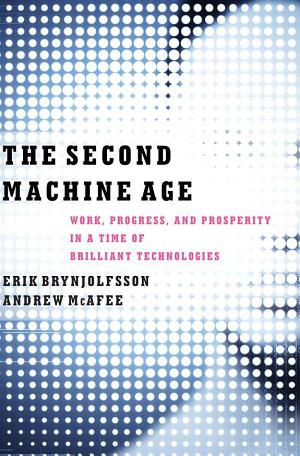Life and Death in Assisted Living
An investigation into the big and often troubling business of caring for aging Americans.
Showing 25 articles matching fk33.cc_What is the price of magnesium sulfate pentahydrate in China.
An investigation into the big and often troubling business of caring for aging Americans.
A.C. Thompson, Jonathan Jones ProPublica Jul–Aug 2013 55min Permalink

The story of a newscaster’s suicide.
Sally Quinn Washington Post Aug 1974 25min Permalink
How the waters off of LA became a DDT dumping ground.
Rosanna Xia Los Angeles Times Oct 2020 30min Permalink
Meet a man who could be called the “Hillaryland Whisperer.”
Patrick Caldwell, Andy Kroll Mother Jones Apr 2015 15min Permalink
Thoughts on an emerging brand of feminism and the ridiculousness of claiming that Tina Fey is unattractive.
Sady Doyle Tiger Beatdown Mar 2010 10min Permalink
How did the gambling magnate and prolific super PAC donor amass his billions?
Lowell Bergman, Matt Isaacs, Stephen Engelberg Frontline Jul 2012 20min Permalink

The case against “American Taliban” John Walker Lindh.
Jane Mayer New Yorker Mar 2003 35min Permalink
On the stupid things people say to the elderly.
Helen Garner The Monthly May 2015 10min Permalink

This guide is sponsored by The Second Machine Age, the New York Times bestseller by MIT's Erik Brynjolfsson and Andrew McAfee.
The Second Machine Age is a book about how the technological revolution is reinventing our lives and our economy. But unlike so many writing about tech, Brynjolfsson and McAfee, two thinkers at the forefront of their field, are hopeful for our technological future. And they've come up with roadmap for how to navigate it.
Buy a copy today. And while you wait for it to arrive, check out this collection of great, optimistic articles about tech, curated by Brynjolfsson and McAfee, that helped inspire their book:
Way before Ray Kurzweil, Keynes showed us what happens as exponential growth accumulates over time. His projections about how big the economy would become after decades of compounded growth sounded like lunacy to readers during the Great Depression but were amazingly accurate, as was his prediction that humanity would move past its “struggle for subsistence” within a century. At the same time, he overestimated how quickly the work week would get shorter – most of us are working a lot more hours than he envisioned.
John Maynard Keynes Essays in Persuasion Jan 1930 15min
This description of what Usenet is and how it works, written shortly before the Web exploded into the mainstream, got important things right: the net’s great variety and utility, its unruliness, and the overall spirit of helpfulness and sharing that persists more than two decades later.
Robert Wright The New Republic Sep 1993 20min
Economist Julian Simon is an intellectual hero of ours. Throughout his underappreciated career he made the case that things were getting better instead of worse, backed up his arguments with masses of data, and won wagers against prominent Malthusians. This piece is a great introduction to his thinking, and gives him some of the recognition he’s due.
Before the Watson supercomputer trounced the two best human Jeopardy! players early in 2011, this article revealed its uncanny ability to mine vast amounts of text in search of answers to tough questions, and to navigate the punning and other wordplay that the quiz show throws at its contestants. This is one of the articles that made us say to each other “Something’s different now…”
Clive Thompson New York Times Magazine Jun 2010
Kasparov, a powerful writer, explains how computers came to dominate humans at chess and why this is not cause for alarm that they’ll soon be able to do everything better than we do. Chess has long been an exemplar of human intelligence, and increasingly a metaphor for how humans and machines may co-exist.
Garry Kasparov The New York Review of Books Feb 2010 15min
The digital economy is not just different, too often it’s invisible. Brian Arthur brings it to life with a description of all the ways it increasingly surrounds us. As “software eats the world”, to use Marc Andreessen’s evocative phrase, we’ll all need to get more and more familiar with this other economy.
Brian Arthur McKinsey Quarterly Oct 2011 10min
Captures the palpable energy coming from San Francisco’s young technology entrepreneurs, who by perceiving no barriers are knocking a lot of them down. We share Heller’s sense that things are happening more quickly there than just about anyplace else.
Nathan Heller New Yorker Oct 2013 35min
For the data lovers among us, here’s a slew of encouraging trends from falling poverty and crime, to rising life expectancy, literacy and computer power. There’s still a lot of work to be done, but the positive numbers feed our optimism.
Dylan Matthews Washington Post Nov 2013
Amazon • Barnes & Noble • iBookstore • Indiebound • Powell's Buy The Second Machine Age today:</p>
Buy The Second Machine Age today:</p>
Jan 1930 – Nov 2013 Permalink
She was a thirteen-year-old from the Chabad Lubavitch community who would dip into a barbershop bathroom to swap her orthodox clothes for those of a streetwalker. Her pimping and rape allegations against a group of black men in their twenties, repeatedly recanted and then reaffirmed, would send the D.A.’s office into disarray.
Alan Feuer, Colin Moynihan New York Times Jun 2012 10min Permalink
On the assassination of a half-Palestinian, half-Jewish cultural revolutionary.
Adam Shatz London Review of Books Nov 2013 40min Permalink
A profile of former Bosnia Serb military commander Ratko Mladic, whose war crimes trial began, and was abruptly suspended, this week.
Robert Block The New York Review of Books Oct 1995 20min Permalink
Looking back on the making of Sam, Bill, and Neal.
Jennifer Vineyard Vulture Nov 2015 10min Permalink
Best Article Arts History Music
Vignettes of the residents of South Elliot Place.
Stacy Abramson New York Times Jul 2010 Permalink
Rojava becomes the Spanish Civil War of modern times for a ragtag group of leftists revolutionaries.
Seth Harp Rolling Stone Jul 2018 30min Permalink
A profile of England’s pre-eminent scholar of race, culture, and nationalism.
Yohann Koshy Guardian Aug 2021 30min Permalink
“While its source remains something of a mystery, Stuxnet is the new face of 21st-century warfare: invisible, anonymous, and devastating.”
Michael Joseph Gross Vanity Fair Apr 2011 30min Permalink
A patient arrives in a therapist’s office complaining of writer’s block. He’s not in search of the talking cure, though.
Irvin D. Yalom New York Times Feb 2015 10min Permalink

Gang-bang buffet tables, deeply earnest 'Letters to the Editor,' ghost-writing Kierkegaard references into model bios in Barely Legal, and how a half-decade of reviewing porn eroded the thin line between the author's alter egos and self.
Evan Wright LA Weekly Apr 2000 40min Permalink
“Dan Seavey stepped ashore the docks of Grand Haven, Michigan, armed with two of the most dangerous weapons known to man: booze and bad intentions.” The story of the early 20th century’s fiercest Great Lakes pirate.
Michael Bie Classic Wisconsin Jan 2009 10min Permalink
On the perils and poisons of mining for gold in southeastern Peru.

How the media and law enforcement fingered the wrong man for the 1996 Olympic Park bombing.
Marie Brenner Vanity Fair Feb 1997 1h15min Permalink
On Los Angeles’s 1985 declaration of “sanctuary status.”
Paul A. Kramer Los Angeles Review of Books Oct 2020 30min Permalink
“Call me Ishmael. Some years ago—never mind how long precisely—having little or no money in my purse, and nothing particular to interest me on shore, I thought I would sail about a little and see the watery part of the world.”
For a daily short story recommendation from our editors, try Longform Fiction or follow @longformfiction on Twitter.

Wikipedia's legendary sex illustrator, the mysterious L'Wren Scott and an old friend confronts Stephen Glass — the most read articles this week in the new Longform App, available free for iPhone and iPad.
The story and work of Seedfeeder.
Sixteen years after he was exposed as the most fraudulent journalist of his generation, Stephen Glass is confronted by an old friend.
Hanna Rosin The New Republic 25min
How do you start closing the gap between rich and poor? Convince the rich to do it themselves.
L’Wren Scott went from bullied Mormon teen to international model to Hollywood stylist to fashion designer, becoming Mick Jagger’s girlfriend in the process. In March, she took her own life.
Phoebe Eaton GQ (UK) 30min
An investigation into sexual abuse in youth sports, with a focus on USA Swimming.
Rachel Sturtz Outside 10min